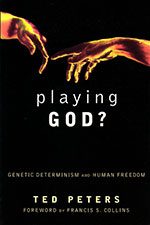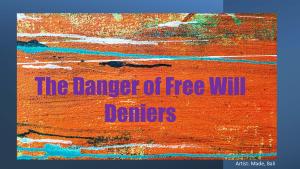 The Danger of Free Will Denial
The Danger of Free Will Denial
Dial 9-1-1! They’re coming from every direction to steal my free will! Woe is me! But, how can I protect my libertarian freedom from divine predestination? From divine foreknowledge? From bondage to sin? From political tyranny? From genetic determinism? And now from neuro-deterministic brain science? Free will deniers on all sides are closing in. Help!
A precise definition is the best defense. So, here is my thesis: human free will exists, and what we mean by free will is self-determination. In common parlance, we know we have libertarian free will if we could have done otherwise. If you and I are a self, then we could have decided to do otherwise. But, will our brains allow this?
To fortify free will, we must defend the centered presence of the human self. The human self exercises free will in the form of deliberation, decision, and action. Such self-determination, along with nature and nurture, make up a three-part determinism. In short, free will could be declared compatible with determinism, as long as the self is a determinant.
This thesis is important in the face of free will denial. Our ancestors in the faith had to face predestination and foreknowledge. [1] Today, we have to face those who conscript neuroscience in support of their materialistic, deterministic, and reductionistic doctrines.
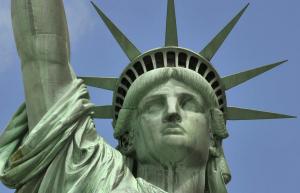
As the public theologian engages in discourse clarification and worldview construction, the debates over human freedom within previous church history may provide both stumbling blocks as well as resources for today’s public debate.
Four Freedoms
Hooray! My libertarian freedom is now protected by an impenetrable definition! Cancel that 9-1-1 call. Right? No, the battle is not quite over.
But, what about those other kinds of freedom? In addition to free will we need to account for political liberty, Christian freedom, and future freedom. These four make up the list that appears in the book, Playing God? Genetic Determinism and Human Freedom. (Peters, Playing God? pp. 17-20)
- Political freedom or liberty
- Free will or libertarian freedom
- Christian freedom, moral freedom, or virtue
- Future freedom
To keep focus in this brief column post, let’s bracket out for the time being both political liberty and future freedom. Let’s also bracket out determinism in the form of predestination, foreknowledge, and genetics. All of these are exciting topics, partly unresolved. But at this point in time, the most formidable battalion in the free will denial army is neuro-determinism. According to neuro-determinists, the mind is reducible to the brain. This means both the self and free will should find gravesites at Arlington.
In addition to defending libertarian freedom from neuro-centrism, let’s give some attention to Christian freedom. In light of the Augustinian-Reformation tradition, Christians operate with human freedom on two levels. At the first level, we daily enjoy free will in the form of libertarian freedom. We all enjoy the ability to make choices. We all enjoy deciding whether to be vegetarian or meat eating. We all enjoy being a tad unpredictable. We all enjoy choosing between Republicans and Democrats. Well, maybe that’s going too far.
When it comes to our relationship with God, however, we move to a higher level. Our self is unable on its own power to choose God. Our will is bound. Our will is bound to choose what the self already wants. Christian freedom, then, requires liberation of the self from itself by the power of divine grace.
To these two forms of freedom—libertarian freedom and Christian freedom—we now turn.
Will the Neuroscientist Take Away my Free Will?
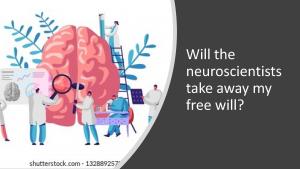
Can we reduce your mind to your brain? Can we reduce your self to a pattern of neuronal firings? Can we reduce your conscious decisions to unconscious brain activity? Is our conscious life determined solely and exhaustively by our physical substrate?
If you listen to free will denying neurophilosophers, it would seem so. American philosopher Daniel Dennett reduces the mind to the brain (Dennett, 2006, p. 107). German philosopher Thomas Metzinger denies that the human self even exists (Metzinger, 2003, p. 1). If they are correct, then we might conclude what Patheos columnist Kyle Roberts observes.
There’s no such thing as a conscious “free will” that penetrates through the murky mass of all those predetermining influences, giving us the power to make real choices that haven’t already been set in motion by those influences and by the internal preparatory activity of our brains, all of which leads up to the particular choices we make….We’re probably not as free as we often feel we are. Still, we don’t need (at this point) to conclude that free will is just an illusion.
Is this accurate? Not quite. [2]
Distinguishing Neuroscientists from Neurophilosophers
We can quickly disarm one squad in the free will denial army by distinguishing between neuroscientists and neurophilosophers. Neuroscientists, for the most part, do not deny free will. They don’t care about the issue. Neuroscientists in their laboratories simply try to learn how the brain works. Even so, we can expect medical advances in brain research to enhance human health and wellbeing. We owe a debt of gratitude to our neuroscientist for medical advances.
Not to the neurophilosopher, however. The neurophilosopher borrows the science and dresses it in the uniform of materialist ideology. As ideologists, neurophilosophers attack common sense with the weapons of materialism, determinism, and reductionism.
The denial of free will is actually the denial of the existence of the human self. If nature and nurture are the exclusive determinants, then we lose our free will. But, if the self is a third determinant, then free will consists of self-determination. Self-determination is what we daily experience in deliberation, decision, and action.

Freedom is not a form of indeterminism. Rather, freedom is an expression of self-determination. This applies to both God’s freedom and human freedom. In fact, it is a free God who makes creaturely freedom possible.
The Self Deliberates, Decides, and Acts
More. We wake up in life to find ourselves as a self who deliberates, decides, and acts. But, we can with effort enhance this libertarian freedom through mindfulness. At least according to Patheos columnists Rachal Popcak and Gregor Popcak. “The more self-possessed, self-aware, mindful a person is, the more behavioral choices they have available to them and the greater impulse control they have.” It appears that the already free self can enhances its own freedom.
The Best Defense? A Precise Definition
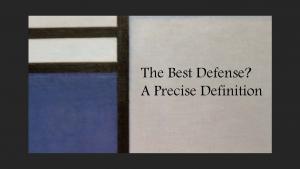
The best defense against neuro-centrist free will denial is a precise definition. Try this one by Polish Thomist philoisopher, Mieczysław A. Krąpiec, “Freedom appears in us—and of this we are conscious—as the ability of self-determination both for action as well as inaction” (Krapiec, 1985, p. 91).
University of California’s George Lakoff draws out the implications of Libertarian freedom for political liberty. “Freedom requires government of the self, by the self, and for the self. In short, there is a metaphorical parallel between freedom for an individual and freedom in a democracy” (Lakoff, 2006, p. 36).
Libertarian Freedom in a Determined World
The political realm sits within the physical realm. What’s going on with physical nature?
There are two ways to look at the physical world. One is the closed-causal nexus of Newtonian physics, according to which the universe operates like a clock. The turning gears determine everything that happens in the mechanism. This classical view is deterministic all the way down. It is known as “Laplace’s Demon” when it takes extreme form; when the present is imprisoned by its past causes.
“We may regard the present state of the universe as the effect of its past and the cause of its future. An intellect which at any given moment knew all of the forces that animate nature and the mutual positions of the beings that compose it, if this intellect were vast enough to submit the data to analysis, could condense into a single formula the movement of the greatest bodies of the universe and that of the lightest atom; for such an intellect nothing could be uncertain and the future just like the past would be present before its eyes.”
The second view is the Copenhagen interpretation of quantum mechanics. Niels Bohr and his Copenhagen disciples affirm indeterminism at the subatomic level. “The development of quantum mechanics and chaos theory have made it unreasonable to claim that science requires a belief in determinism,” physicist John Albright tells us. Might the Copenhagen interpretation open up an indeterministic crack for free will to sneak in?
We don’t need Copenhagen. Even within Newtonian determinism (not Laplace’s Demon), we can account for libertarian freedom. This is because the self is a determinant. When you or I deliberate, decide, and take action, then we become one cause among others in the physical nexus.
What we have just described is future freedom When we take action and alter the physical world and even change history, we are expressing our capacity to co-create. But, that’s a topic for another post.
I advance my argument against free will denial after conceding an axiom formulated by philosopher Michael Gazzaniga: “We are personally responsible agents and are to be held accountable for our actions, even though we live in a determined universe.” (Gazzaniga, 2011, p. 2)
With this axiom in mind, I defend against free will denial a three part determinism: nature, nurture, and self. Our human self is determined by nature [genes, brain] and nurture [environment, experience], to be sure; but our self also determines in part the course of events in our physical history.
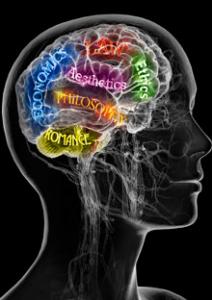
Philosophical Implications of 3 Part Determinism
This has implications for philosophy. Among philosophers, free will ordinarily implies that we could have done otherwise than what we did. Incompatibilism holds that free will and determinism are incompatible; therefore, if determinism, then no free will. Compatibilism or soft determinism holds that we should rethink the concept of free will so that it implies we have “(1) the power or ability to do what we want or desire to do, which in turn entails (2) an absence of constraints or impediments (such as political restraints, coercion, and compulsion) preventing us from doing what we want” (Kane, 2005, p. 13). (Brain photo by Bryan Christie Design)
On the one hand, within these parameters, my own position–free will indicates self-determination–could be placed in the compatibilist camp. On the other hand, I actually contend that free will understood as self-determination could be placed in the incompatibilist camp, as long as we accept three-part determinism: nature, nurture, and self.
In making this argument, I seek to rescue the human self from disintegration and dissolution by neurocentrist philosophers such as Daniel Dennett and Thomas Metzinger. Against the attacks by these free will deniers, I try to defend free will as self-determination. But, this is strictly a scientific and philosophical struggle. It is not theological.
Neurotheology
Yes, there’s a field of neurotheology. Neurotheology, also known as “spiritual neuroscience”, is an emerging field of study that seeks to understand the relationship between the brain science and religion, according to Alitreza Sayadmansour in the Iranian Journal of Neurology.
Can the neurotheologian aid us in answer questions about free will? Here is what Sayadmansour offers.
“There is evidence that frontal lobe activity is involved in executive functions such as planning, coordinating movement and behavior, initiating and producing language. Evidence has also shown the frontal lobes to become activated when an individual performs a meditation or prayer practice in which there is intense concentration on the particular practice.”
First, Sayadmansour offers a correlation between frontal lobe activity and what we experience as willing. Second, Sayadmonsour stops short of ascribing exhaustive causation to this frontal lobe activity. He stops short of reductionism. He stops short of denying the existence of a self that wills freely. He stops short of consigning our actual choices to frontal lobe dictation.
Free Will According to the Systematic Theologian
Once the systematic theologian turned public theologian enters the fray, the battle takes a different turn. After defending the citadel of selfhood from reductionist bombardment, the public theologian breaks down the protective walls and delivers the self to both neighbor and enemy in selfless love. Rather than protect the self, the theologian tries to give the self away. And to make matters more confusing, the theologian’s trumpet rallies us to liberate the self from itself.
Freedom simply does not mean the same thing for both the philosopher and the theologian. Here in this brief column post, I’d like to augment the previous defense of human freedom with a concise answer to the question: just what is distinctively Christian freedom?
Level 1: Self-Determination
The model of daily freedom as self-determination is by no means foreign to the theologian. Even Karl Barth can acknowledge: “A free man is one who chooses, decides, and determines himself and who acts according to his thoughts, words, and deeds” (Barth, 1968, p. 84). Or, in the words of John Cobb, “Self -determination…must mean that the intention was not in its turn a product of antecedent factors alone. Instead the intention must have been in part self-determined in the moment in which it precipitated the action” (Cobb, 1983, p. 52). Natural freedom buttressed by political liberty betoken human beings who exhibit future freedom: we can make history through deliberation, decision, and activity.
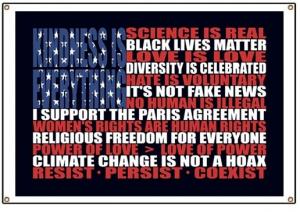
But, the theologian senses a Quisling within the free will fortress. According to the Augustinian tradition, the natural self is incurvatus in se, curved in upon itself. The self cannot but express itself on behalf of its own self-interest. What in our democratic culture is celebrated as free will is nothing more than subjective arbitrariness, the unavoidable choosing of what would be in a person’s own self-interest.
This theological threat posed by the human will surfaces in Jonathan Edwards. Speaking for Edwards, Patheos columnist Coyle Neal tells us that the will is the part of a person by which our inmost desires and inclinations are transformed into real-world action. When we perform an act of the will, we are exercising that aspect of the human being which works as a conduit between who we are internally and what we say and do externally. In a sense, the will is a tool of the mind that converts our “wants” into “actions.”
Our daily freedom, to put it another way, is bound to self-interest. The will is a slave of the self.
What happens, then, when we are called to a high moral standard in which the interest of the other is required? Can the self sacrifice the self? Can the self be liberated from itself? Theologians in the Augustinian tradition answer: yes, when empowered by the Holy Spirit. In Augustine the terms ‘grace’ and ‘Holy Spirit’ and interchangeable on this topic. When we are graced by God, we are free for loving the neighbor.
Level 2: Christian Freedom from Self for Others
Enter: Christian freedom. In the face of this bound will, what Christians intend by the mandate to love God and to love neighbor requires liberation from this bondage to the self. Martin Luther presents the challenge in the form of a stark paradox:
The Christian individual is a completely free lord of all, subject to none.
The Christian individual is a completely dutiful servant of all, subject to all in love.
(Luther, The Freedom of a Christian, 2015-2020, p. 488)
God’s grace liberates the self from the self in order for the self to love another self as itself. By no means is Christian freedom a variant on the Buddhist notion of anatta, no-self. Quite the opposite. For the Christian, it’s a transformed self not an absent self.
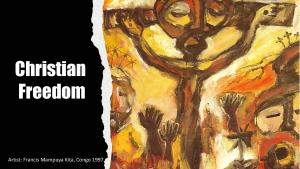
Empowered by divine grace the human self becomes a more robust self, but a de-centered and loving self. Theololgian Paul Hinlicky employs the term, decentering, to make this point. “So true freedom on the earth consists in such decentering freedom from self for others and all in love and hope,” writes Hinlicky; “freedom in faith from all other claims of allegiance, and just so the Spirit’s martyrs refusing to bend the knee to the bullies or to sell one’s the soul to their sycophants. Decentering is to dwell in Christ by faith that works in love and hope” (Hinlicky, 2010, p. 170).
Theologian Karl Barth called this, “evangelical ethics.” Despite what sociologists say about Protestantism and capitalism, both our Lutheran and Calvinist colleagues claim that Christian freedom frees the self for pursuing justice on behalf of others.
Cal Tech neuroscientist and neurotheologian Michael Spezio adds flesh to the skeleton of neighbor-love. To love requires humility understood as kenotic empathy. “Humility as the practice of kenotic empathy empties me of my assumptions of the other and clears space for me to welcome them, to see them, to hear them, so that I can begin to understand.”
Love in the form of agape love describes a human person in the act of loving either God or neighbor in such a way that his or her self is transcended.
The Paradox: selfless-expression and self-expression
What does this imply for the scientific and philosophical debate? Self-determination does not go away. Even in the case of Christian freedom, we can observe that it is still the human self which deliberates, decides, and acts. Even the liberated person with the decentered self committed to neighbor love still takes action produced by a self that deliberates and decides. Decentered moral action still results from deliberation and decision centered in the self.
From the perspective of the everyday world at the first level, the person liberated by divine grace looks like a rugged individualist: mission-bent, self-creative, independent, and courageous. Eastern Orthodox theologian Verna Harrison avers, “Divine freedom supports human freedom, and human freedom is called to cooperate with divine freedom….Human freedom is a good gift because it makes it possible for us to love God in return, to assist in God’s work, to grow into the divine likeness” (Harrison, 2008, p. 82).
Here is the paradoxical point: loving one’s neighbor or loving God for God’s sake cannot avoid taking the form of self-expression. This obtains even when engaged in moral self-denial in the interests of the beloved. This paradox is unavoidable. We must accept the reality that in this life our loving actions will inevitably include self-expression and self-determination even when oriented toward a good which transcends the self. Pure selfless action is impossible; yet loving one’s neighbor and loving God is possible.
This led Luther to a new commandment: sin boldly! “Be a sinner and sin boldly, but believe and rejoice in Christ even more boldly, for he is victorious over sin, death, and the world” (Luther, Letter to Philip Melanchthon (August 1, 1521), 1961-1986, pp. 48:281-282). (World Heart by Madi, Bali)

Conclusion
We need not think of the laboratory researchers as soldiers in an army marching against free will. What we learn from Karim Fifel in the Journal of Neuroscience, for example, is that the science requires neither determinism nor elimination of libertarian free will. “Neuroscience may in no way interfere with our first-person experience of the will, it can in the end only describe it … it leaves everything as it is.” The free will deniers march with the neuro-centrist philosophers, not the actual scientists. Regardless, the assault requires a defense.
In the war to protect libertarian freedom from the forces of free will denial, I have found protection by formulating a precise definition. Libertarian freedom should be understood as the human self when engaged in deliberation, decision, and action. This definition does not require indeterminism. Rather, it is compatible with three-part determinism: nature, nurture, and self. I have defended this model of human freedom over against neurocentrist free will deniers who try to reduce what we experience as free will to two-part determinism, nature and nurture.
For the theologian in the Augustinian and Reformation tradition, however, this leaves the job only half done. Libertarian freedom needs to be supplemented by Christian freedom. Are these two levels of freedom in tension? Yes and no.
On the surface, the doctrine of Christian freedom appears to sacrifice the very self earlier defended when morally prescribing selfless love toward the neighbor. It appears that the very self I had defended philosophically and scientifically must now be given away theologically.
The tension is resolved, however, when we realize the paradox. What actually happens is that the human self empowered by divine grace becomes capable of self-transcendence. This is a moral self-transcendence, a giving of the self over to a principle of virtue or to the well-being of a neighbor in need. Such selfless loving requires self-generated initiative, creativity, and courage. Paradoxically, the giving of the self defines the self as a giving self. This makes the self godly.
Patheos SR 1018 The Danger of Free Will Denial
▓
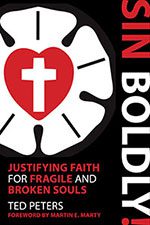 Ted Peters directs traffic at the intersection of science, religion, and ethics. Peters is a professor at the Graduate Theological Union (GTU), where he co-edits the journal, Theology and Science, on behalf of the Center for Theology and the Natural Sciences (CTNS), in Berkeley, California, USA. He is author of Playing God? Genetic Determinism and Human Freedom (Routledge, 2nd ed., 2002). Visit his website: TedsTimelyTake.com.
Ted Peters directs traffic at the intersection of science, religion, and ethics. Peters is a professor at the Graduate Theological Union (GTU), where he co-edits the journal, Theology and Science, on behalf of the Center for Theology and the Natural Sciences (CTNS), in Berkeley, California, USA. He is author of Playing God? Genetic Determinism and Human Freedom (Routledge, 2nd ed., 2002). Visit his website: TedsTimelyTake.com.
▓
[1] Patheos columnist Roger E. Olson balances foreknowledge and determinism. “While I still agree that God foreknows absolutely, comprehensively, all that will happen, including decisions and actions of genuinely free creatures, I am reluctant to say that all of what happens and will happen is planned by God and I do believe that much that happens thwarts God’s perfect will. God does not always get his way. There. That’s my heretical confession (of what I believe).” [2] It appears from neuroscientific literature that the brain makes our decisions before we become conscious of making a decision. Is this decisive? No. A closer examination of the literature, says ? Sophia Carozza, shows that (1) the neuroscience experiments in question are full of problems and limitations and (2) this isn’t a scientific conclusion at all. Carozza goes on. Perhaps the most glaring is the jump from correlation (the Bereitschaftspotential is associated with the decision to act) to causation (the Bereitschaftspotential CAUSES the decision to act). The unwarranted inference of causality is a perennial temptation in the interpretation of scientific research. In reality, what the science demonstrates is much weaker. All the research shows is that an ERP signal is generally exhibited in the brain of an individual engaging in a decision-making task. To infer causation, you need to come in with prior conclusions. Sophia Carozza, “Neuroscience does (not) disprove free will.”Bibliography
Barth, K. (1968). The Humanit of God. Louisville KY: Westminster John Knox.
Cobb, J. (1983). God and the Scientific Worldview. In e. David Tracy and John Cobb, Talking about God: Doing Theology in the Context of Modern Pluralism. New York: Seabury.
Dennett, D. (2006). Breakikng the Spell. New York: Viking.
Gazzaniga, M. (2011). Who’s in Charge? Free Will and the Science of the Brain. New York: Harper.
Harrison, V. (2008). The human person as an image and likeness of God. In M. C. Theokritoff, The Cambridge Companion to Orthodox Christian Theology (pp. 78-92). Cambridge: Cambridge University Press.
Hinlicky, P. (2010). Luther and the Beloved Community: A Path for Christian Theology after Christendom. Grand Rapids MI: Wm B Eerdmans.
Kane, R. (2005). A Contemporary Introduction to Free Will. Oxford: Oxford University Press.
Krapiec, M. (1985). I-Man: An Outline of Philosophical Anthropology. New Britain CT: Mariel Publications.
Lakoff, G. (2006). Whose Freedom? The Battle Over America’s Most Important Idea. New York: Farrar, Straus, and Giroux.
Luther, M. (1961-1986). Letter to Philip Melanchthon (August 1, 1521). In M. Luther, Luther’s Works, American Edition, 55 Volumes (pp. 48:281-282). Minneapolis MN:: Fortress Press.
Luther, M. (1969). The Bondage of the Will. Louisville KY: Westminster John Knox.
Luther, M. (2015-2020). The Freedom of a Christian. In M. Luther, The Annotated Luther, 5 Volumes (pp. 1: 467-518). Minneapolis MN: Fortress Press.
Metzinger, T. (2003). Being No One. Cambridge MA: MIT Press.
Peters, T. (2002). Playing God? Genetic Determinism and Human Freedom, 2nd ed. London and New York: Routledge.
Peters, T. (2018). Contingency and Freedom in Brains and Selves. In e. Robert John Russell and Joshua Moritz, God’s Providence and Randomness in Nature (pp. 261-288). West Conshocken PA: Templeton Press.


